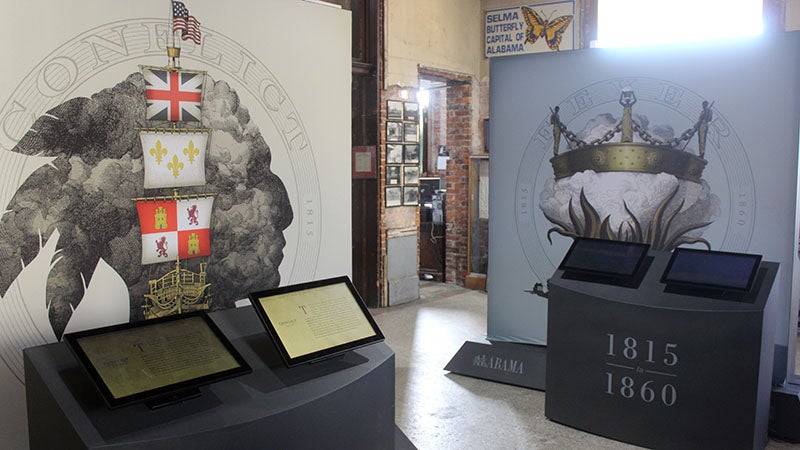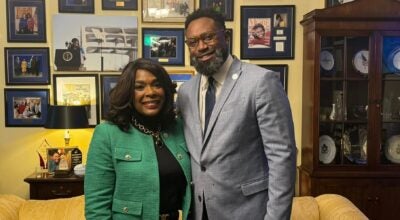Exhibit on display at Old Depot
Published 4:22 pm Wednesday, January 16, 2019
On a series of oversized panels, the Alabama Humanities Foundation’s Bicentennial Exhibit tells the story of Alabama, from the formation of its landscape to the various social and political upheavals that have made up its history.
The exhibit is on display at the Old Depot Museum from 10 a.m. until 4 p.m. daily and Executive Director Beth Spivey said the museum will be open Saturday and on Martin Luther King, Jr. Day to accommodate visitors.
The exhibit will remain in Selma until Jan. 24 when it will be packed up and shipped to another city in Alabama.
Setting up the exhibit, which arrived in the back of a tractor trailer last Thursday and had to be unloaded and assembled, was “quite an undertaking,” Spivey said.
And though attendance has been slow, Spivey is optimistic that the exhibit will pick up steam before its departure next week.
The first panel in the exhibit is entitled “Wonder” and details the landscape of Alabama from prehistory until 1700.
The next panel, “Conflict,” describes the plight of Native Americans who had to come to terms with explorers from Spain, England and France all trying to lay claim to portions of present-day Alabama.
“Fever,” which details the years 1815 until 1860, described the way Alabama grew from a “rugged frontier to an antebellum society” in the course of a few decades. The next panel, “Conviction,” covers the Civil War and its aftermath.
“Power” covers the years 1875 until 1940 and describes how Alabama became the “most heavily industrialized nation in the South” and “Struggle,” ranging from 1940 until 1965, covers the impacts of World War II and the burgeoning Civil Rights movement.
The next panel, “Change,” discussed the Voting Rights Movement, the Vietnam War and the flourishing of arts and science in Alabama and “Hope,” covers the years 1990 into the future.
There are also panels on site dedicated to Alabamians important to Selma and Black Belt region, including William Lowndes Yancey, Oscar Adams, Jr. and Rosa Parks.






